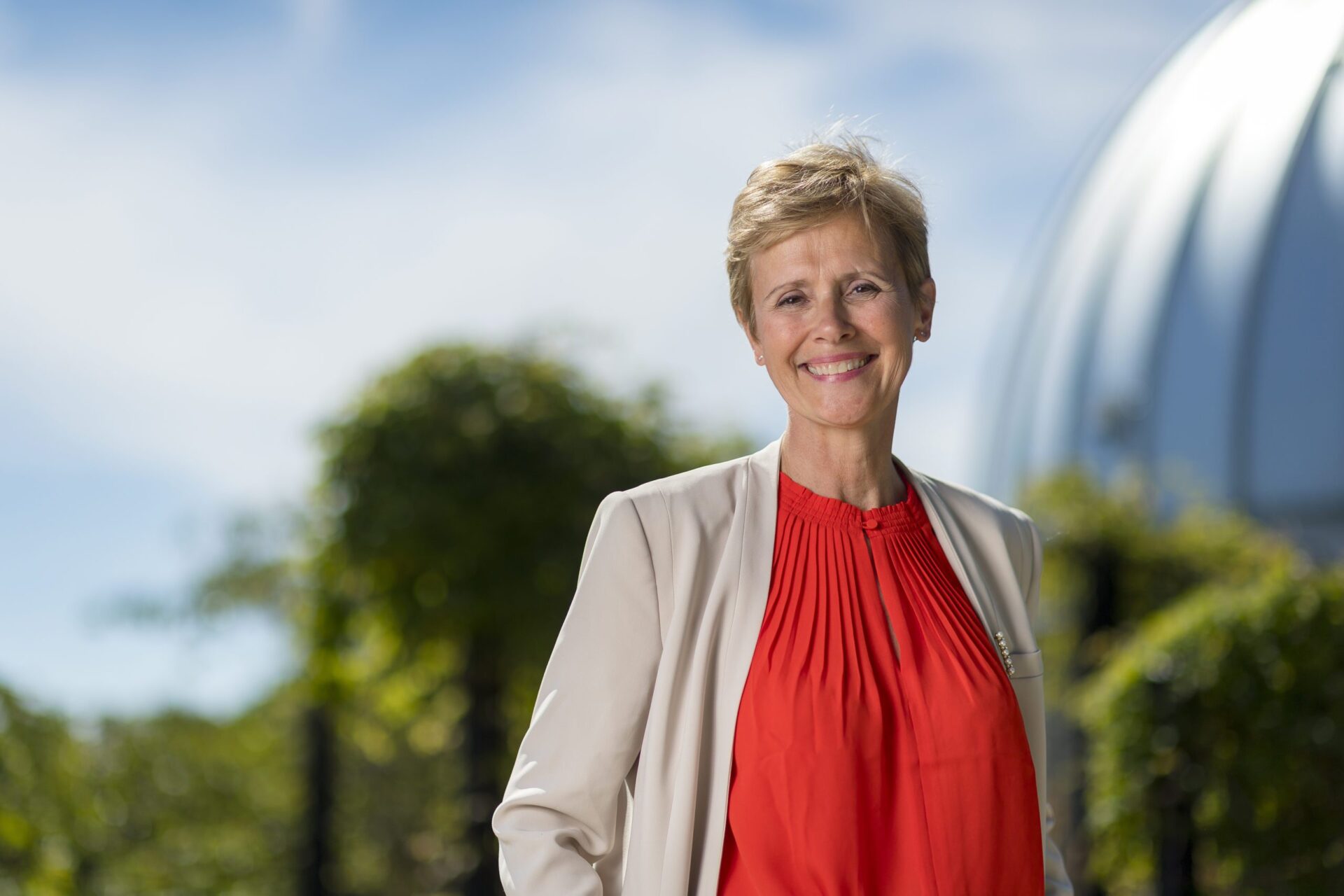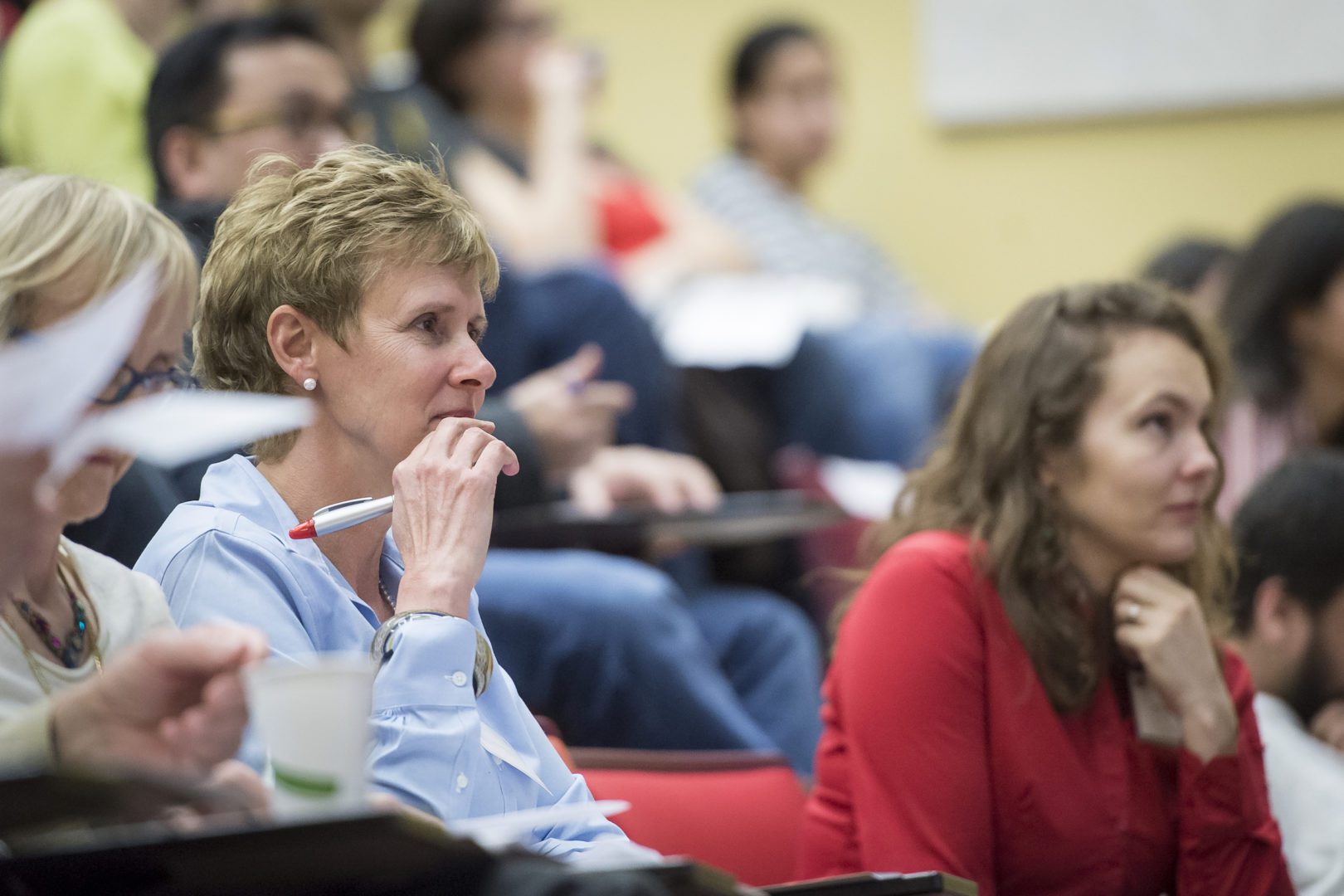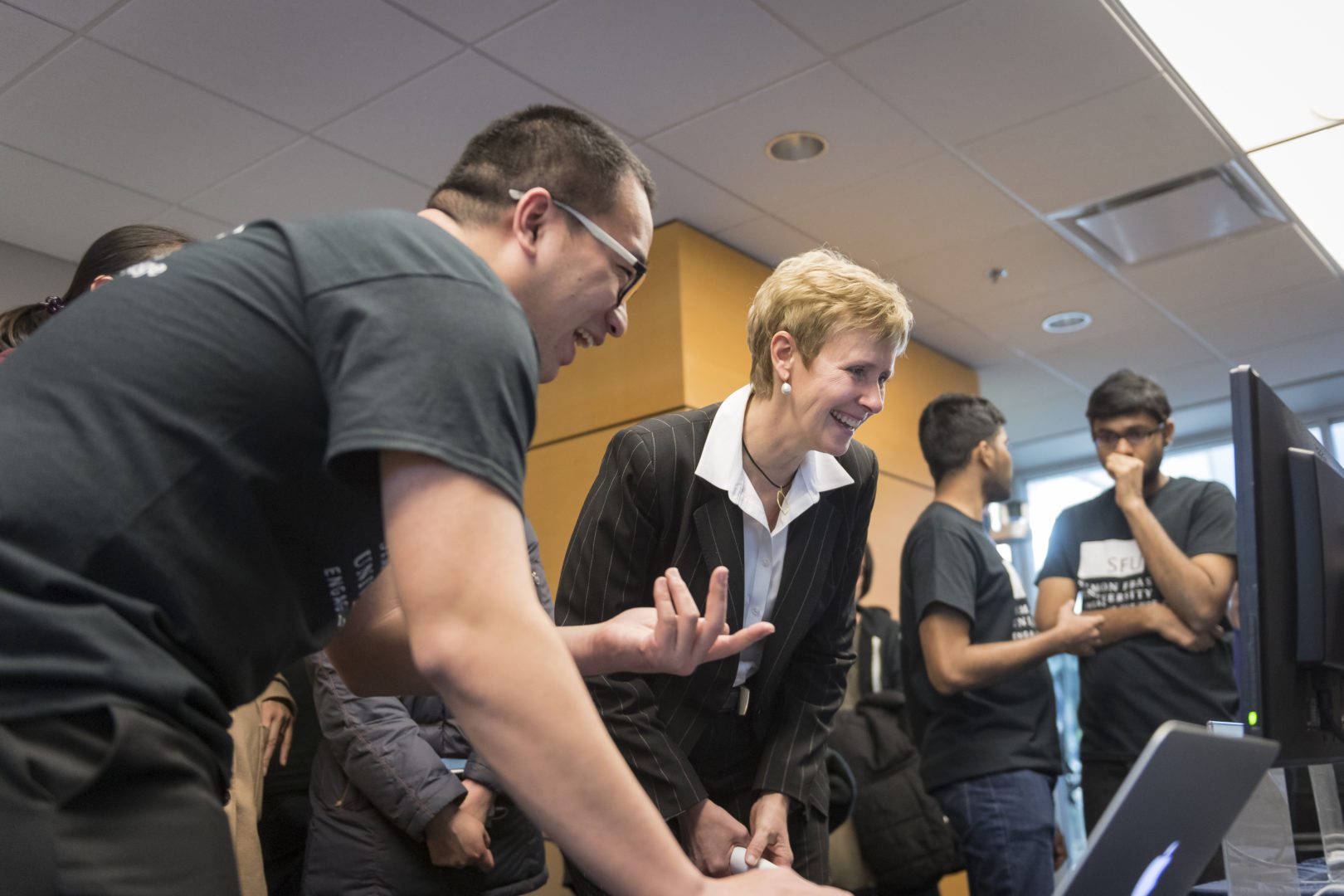A Year and a Half of Change for SFU President Joy Johnson
Back to Posts
A Year and a Half of Change for SFU President Joy Johnson
By Alison Knill (Twitter: @alison_knill)
In July 2019, I interviewed Joy Johnson about her, then position as the vice president of research and international at Simon Fraser University. We talked about the challenges, what she enjoyed, and what her future goals were. With Joy now in her first year as SFU’s president, we had another conversation in December 2020 to reminisce and, again, look to the future.
A 2019 Interview
Joy’s academic and health research background prepared her for the role of VP research and international, but every job has its challenges. Joy told me that one challenge even presented itself during the job interview.
The position had a large focus on innovation–an area she didn’t have a lot of experience in. She knew that the university needed a strong innovation strategy, which meant she needed to dive into learning about innovation.
“I was lucky I surrounded myself [with] really smart people who helped me kind of get up to speed,” she said. “I was running pretty quick there for a while just trying to stay on the treadmill and understand what we needed to do and what, really, what is innovation.”
On top of learning the what, Joy also needed to understand SFU’s culture to know what innovative approach was best. “That kept me up a few nights there for a while.”
Her hard work paid off. Joy was able to foster innovation at SFU through her leadership in SFU Innovates, and BC-wide as a board member of Innovate BC at the time.
SFU Innovates focuses on four pillars: entrepreneurship, social innovation, incubation and acceleration, and industry and community research partnerships.
One major component Joy talked about within the pillars was the idea of innovation through research collaboration. She wanted to connect to people in different areas of research and expand, what she called, “pockets of expertise”.
The idea of how to include collaboration in an innovation strategy came from a project. “We had a program with the Beedie Business School and the engineers together, bringing business students and engineers together, to think about what could be developed for business purposes, which was a really neat thing,” she said.
“But I think we started to ask, could we do more of that? What would be an innovation strategy for the university?”
One challenge connecting researchers from multiple research areas is learning how to communicate with everyone. Every field has its own vocabulary. “I think I learned quickly, though, that really I didn’t need to speak the science, I didn’t need to know all the intricacies” she said.
“I needed to know enough and really listen well so that when people were talking to me about what they needed, I could really understand what was going to be needed and help pull a few leavers or help support in a bigger way.”
Joy welcomed the challenge, though. For her, the opportunity to learn something new every day was a privilege. Her desire to continue learning even earned the number one spot in her future goals.

As for her professional goals, she said she still had work ahead of her to keep improving SFU’s research portfolio. But she would still get an itch for another challenge eventually. “People are very cagey about their aspirations, right? They don’t talk about, necessarily, where they want to go,” she said. “But I’ve always been a person…looking, you know, kind of on the horizon a little bit.”
A Year and a Half of Difference
Her horizon? SFU President and Vice-Chancellor.
Looking back, she had her eye on a presidency as a next step and SFU was her ideal place. “I love the values of this institution. I love the ethos, the way people work together, the sense of fun that comes out,” she said.
Staying at SFU also meant that she could continue leading projects that enhance the university. One of Joy’s priorities is improving equity, diversity and inclusion at SFU. The EDI initiative focuses on addressing the barriers that marginalized groups experience and supporting cultural change across the university. Joy found that the EDI priorities resonated with people, and that work was already being done on the ground. The initiative has community support, which means the biggest challenge comes from the scope of the problem.
“I think the work on equity, diversity, and inclusion is really hard because it’s complex and it’s very personal for people,” she said. “We are talking about, really, cultural change at this university, and those kinds of changes don’t happen from the top. You can set a tone and create expectations, but we, as a university, all are going to have to get behind this.”
And they are.
People in the community are coming together to make the change. They’re forming committees, working groups, events, and even new positions. In particular, the Faculty of Education collaborated with Indigenous knowledge holders, Elders and linguists to create the new Associate Dean, Indigeneity position.
When it comes to EDI, Joy’s focus right now is finding structures—such as the new Vice President, People, Equity and Inclusion position —that help support the cultural change happening in the community. A big learning curve for her has been knowing how to step back and empower those around her.
“It’s kind of this balance about asking questions, trying to, you know, put your nose into things, but not put your fingers in,” she said. “I’ve got to sit on my hands every once in a while and realize that–and I need to do that in part because–I assume I know what needs to be done, but often I don’t, and I need to listen.”
She’s needed to learn her bandwidth and how to say no. There aren’t enough hours in a day for her to take on everything.
Looking Ahead in the Current Landscape
Having started her presidency in 2020, we needed to address an elephant in the room: the COVID-19 Pandemic.
What impact has it had? How has her nursing background helped?
“I will leave [pandemic] responses to our public health officials, but I do think my background is helpful in that I really get how people are struggling and I understand that you just [need] to let people talk about that,” she said. “I don’t have any magic answers and that’s hard. But I think that…having come from a healthcare background, having been a nurse, you kind of learned that it’s important to be empathetic and a good listener and ask questions.”
The pandemic has made things difficult university-wide, with less revenue coming in and professors needing to alter their courses for online learning. It’s also changed how people can host university events.
“We have amazing events at SFU, where we bring our communities together. Some of them are lectures and academics, some are more just you know, engagement events where we, you know, get to meet each other and talk about things that matter to us,” she said.
One thing Joy looks forward to events returning when it’s safe to lift restrictions because, as she said, “As human creatures, we are social animals, and we love to be together.”

There is a silver lining to the restrictions, though. Without travel, Joy is able to really focus her attention on what SFU needs. Travelling will eventually come back as part of her job as an ambassador, but for now, Zoom will have to suffice.
Despite the challenges of starting her presidency during the pandemic, Joy loves her work and loves being kept busy. And there’s a lot to keep her busy between supporting EDI initiatives, reconciliation, completing a Burnaby Mountain gondola, and creating a new, community-engaged medical program.
“I just feel so honoured to be named the 10th President,” she said. “It’s a dream come true.”
Keep in touch
- Stay up to date with all the latest SCWIST news and events by connecting with us on LinkedIn, Facebook, Instagram and X, or by subscribing to our newsletter.
Alison Knill is a graduate of the Master of Journalism program at UBC and is a former SCWIST Communications Intern. Have questions for Alison? Contact her via Twitter @alison_knill.